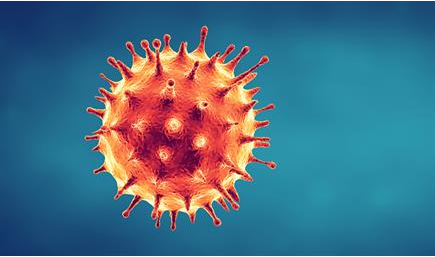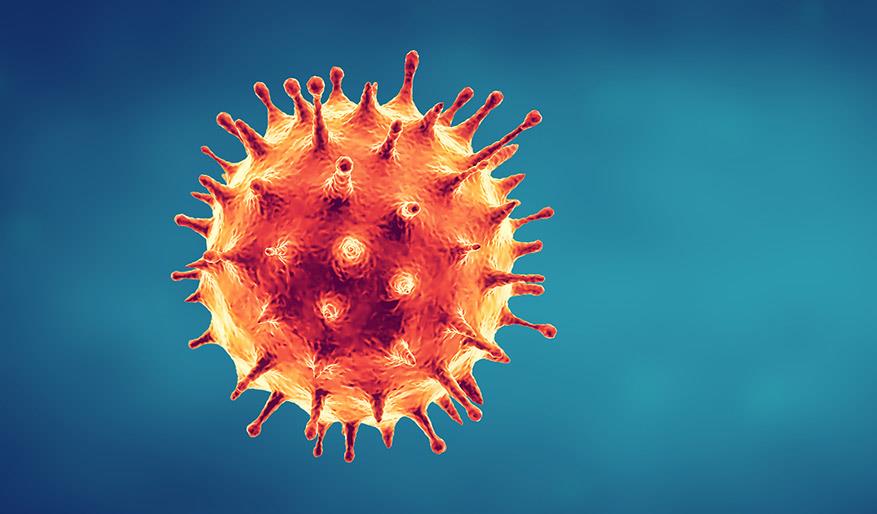Our Doctors
Meet all the doctors from Cleveland Clinic Abu Dhabi.
View Doctors
Everything you need to know about COVID-19

According to the World Health Organisation (WHO), coronaviruses are a large family of viruses, some of which can cause illness from the common cold to more severe diseases. The Middle East Respiratory Syndrome (MERS) and Severe Acute Respiratory Syndrome (SARS) outbreaks were both caused by different strains of the coronavirus.
What is coronavirus?
Coronavirus is the name given to a family of viruses that cause respiratory illness in humans. Under a microscope the virus has many spikes that look like crowns. Corona is another term for a crown, hence the name coronavirus.
What is COVID-19?
In early 2020, the WHO identified a new strain of coronavirus, following an outbreak which started in China in December 2019. The new strain is called severe acute respiratory syndrome coronavirus 2 (SARS-CoV-2) and this is the virus which causes a respiratory illness called COVID-19.
COVID-19 causes a respiratory tract infection, either in your upper respiratory tract (nose, throat and sinuses) or your lower respiratory tract (windpipe and lungs).
What are the symptoms of COVID-19?
COVID-19 causes respiratory symptoms. The most common symptoms include:
Some people may have:
Symptoms can vary from very mild to severe. Some people can have COVID-19 and not develop any symptoms and don’t feel unwell.
It’s estimated that 80% of people recover from the illness without needing any hospital treatment. About 1 in 6 people will become seriously ill and have trouble breathing
Older people and those with underlying health conditions like diabetes and heart conditions are more likely to become seriously ill.
How do I know if I have it?
The only way to know for certain if you have COVID-19 is via a laboratory test. The test involves a medical professional collecting a sample of your saliva or taking a swab from your throat or nose.
If you think you have any of the symptoms of COVID-19, including feeling unwell with a cough and difficulty breathing, or you have been in contact with someone who has or thinks they have the virus, call your local health authority and self-isolate immediately. They will advise you what to do next.
In the UAE, you can contact:
How does COVID-19 spread?
We know that COVID-19 spreads very easily from person to person. It’s believed the virus travels in respiratory droplets when an infected person coughs or sneezes. These infected droplets are airborne and pass to you through your mouth or nose when you are nearby. They can also land on a surface and live for a number of days. When you touch that surface, the virus passes to your hands and then to your mouth or nose when you touch your face.
If the virus does come into contact with your mouth or nose, either via airborne droplets or transfer from your hands, it travels to the back of your throat and attaches to your body’s own cells. It quickly multiplies and moves to the lung tissue and other parts of the body.
How can I protect myself?
There are two very simple, but very effective things you can do to protect yourself. The first is hand washing. Any virus that our hands come into contact with can easily pass to our mouth or nose when we touch our faces. Regular, thorough hand washing, with clean water and soap for at least 20 seconds, will make sure we get rid of any virus we have come into contact with.
The second is physical distancing; simply put, this means avoiding people. As the virus spreads easily and rapidly between people, the easiest way to avoid infection is to avoid others. Try and stay at home as much as possible and if you do have to go out, maintain a distance of at least 1.5 meters at all times.
How is it treated?
At the moment there is no cure or vaccination available for COVID-19. A vaccine is being developed, but it will be many months before it is available. If you do become unwell, and your symptoms are mild, the illness is managed the same way as other coronaviruses; with rest, plenty of fluids and home remedies to ease a sore throat or cough. If your symptoms are more severe then more supportive treatments will be given by a doctor or at a hospital. These will vary depending on severity but could include fluids to prevent dehydration and medication to reduce a fever. In the most severe cases patients may need a ventilator to help them breathe.